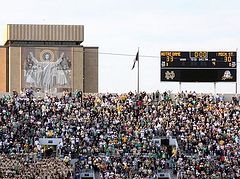Such seemingly unrelated problems as those concerning vaccines, the coronavirus, police violence and the anarchic response to it ultimately derive from, or are exacerbated by, the same factor. We have journeyed to the “far country” (cf. Luke 15:13) of secularism, and we can no longer conceal the consequent hunger pangs of our spiritual famine. However facile or naïve this explanation might appear to modern man, our self-imposed exile from God is the root cause of this multi-symptomatic illness.
After all, as I explain elsewhere, a society that rejects God abandons—or, at a minimum, tenuously upholds—the concept of absolute truth. Christians believe in the “existence of a transcendent, personal being who … is identified with the truth and cares about whether we are truthful.” Those who believe that truth is ultimately “a person—a humble, meek, and compassionate person whom we crucify with our lies—will hesitate before telling a falsehood, or at the very least feel compunction and repent when they do.” On the other hand, those who regard truth as “an impersonal abstraction” will be “less likely to sense fear or shame [when] violating it.”
It is perhaps no coincidence, then, that as a growing number of people profess no religion, “lying is on the rise”. In the present context, “winning” (that is, securing a narrow, earthly victory) takes precedence over honesty and other moral virtues. The euphoria felt when playing the hero need not be tempered by the discovery that your struggle is predicated on false pretenses; “your” truth consists of whatever maximizes pleasure in this life, as there is no afterlife in which you will pay for your injustices.
Is it any wonder, then, that we are increasingly distrustful of our institutions, as well as each other (see time series data from the World Values Survey)? Should it surprise us that many refuse (correctly or otherwise) to heed CDC recommendations on slowing the spread of the coronavirus, or believe the media’s dire assessment of our battle against the pandemic?
Should it surprise us that some parents distrust (again, correctly or not) the “science” on vaccines, when there have been numerous cases of scientific misconduct, and the FDA, “an agency that has long enjoyed a profitable relationship with pharmaceutical companies,” has been criticized for “failing to disclose scientific fraud”?
Should it surprise us that many African-Americans are suspicious of the police, given highly-publicized instances of white-on-black police violence? Or that many conservatives refuse to trust the media, given both its highly selective coverage of police brutality and the fact that it ignores (or downplays) controlled studies (e.g., see here) that suggest, contrary to other research (e.g., see here), that blacks are not significantly more likely than whites to be fatally shot by the police?
It is especially difficult to know what is true in a culture that has devalued the truth. Rarely do we blame the purveyors of confusion, let alone the sinful impulses within them and us all. Rather, we typically indict its victims—whether they are COVID skeptics or alarmists, anti- or pro-“vaxxers”, or supporters or opponents of law enforcement. Until we acknowledge the root cause of our distrust—until we realize that our ultimate enemy is unseen and within—we will continue to externalize our spiritual illness onto other individuals and classes of people. Accordingly, the evil of domestic violence is embodied in men; crime in immigrants; racism in whites. It is not difficult to understand the temptation to embrace an outlook that simplifies reality and provides us with an external and concrete object to which we can direct our anger, which is incidentally also on the rise.
Especially prone to this outlook are atheists, be they overt unbelievers or nominal or untreated Christians. This is because the true and ultimate cause of evil—i.e., the fallenness common to all mankind—has been revealed to us by the God whom they reject. The evil to which our fallenness gives rise appears in such diverse ways that we often forget the common origin of these manifestations. What ultimately causes a police officer to abuse his power also leads a protester to chant “all cops are bastards!” The one who genuinely believes that all have fallen short (Rom. 3:23) and regards himself as "the chief of sinners" (1 Tim 1:15) is most capable of resisting the temptation to espouse hatred in its manifold forms.
It is Time to Come to Ourselves
“Remember, wretched man, how thou art enslaved to lies, slander, theft…on account of sin. O my sinful soul, is this what thou hast desired?”
Ode V, Canon of Repentance to Our Lord Jesus Christ
Perhaps it is time to revisit the ultimate questions. Why does God allow suffering? Are science and faith compatible? If God created the universe, then who or what created God? If the status quo was worth preserving, then perhaps our often uncritical acceptance of atheists’ simple, asinine answers to these and other questions could be excused. But we live in an increasingly fractious country that, according to a third of its voters, stands at the precipice of another civil war and is beset by a suicide epidemic. Is this what we have desired?
Does our current state not justify putting more time into these questions, listening directly and humbly to what articulate believers who have seriously pondered them have to say? What harm is there in visiting a monastery; in picking up a book by C.S. Lewis (himself a former atheist), G.K. Chesterton, or my fellow Orthodox Christian, Alexei Osipov; or in starting email exchanges with well-known believers (I would wager that most would happily engage those who introduce themselves as atheists)? By these and other means, we—white and black, liberal and conservative—may begin our collective journey home to God. May we all ultimately enter His house, the Holy Orthodox Church, and eat of the “fatted calf” (i.e., partake of the Eucharist) in celebration of our homecoming!
The alternative is to remain in our confused, divided, and self-destructive state. Let us come to ourselves (cf. Luke 15:17) while there is still time.
I would like to thank Igumens John Townsend and Cyprian DuRant for reviewing earlier drafts of this essay.





